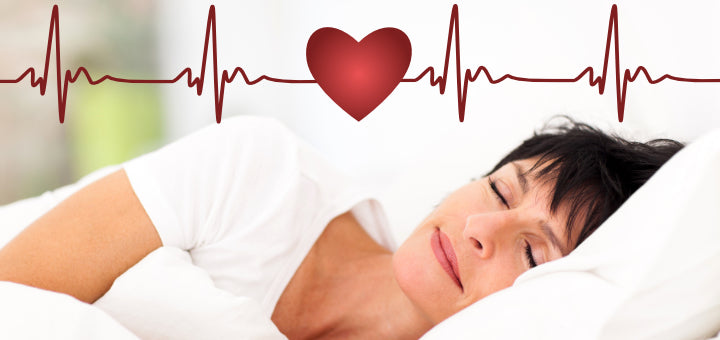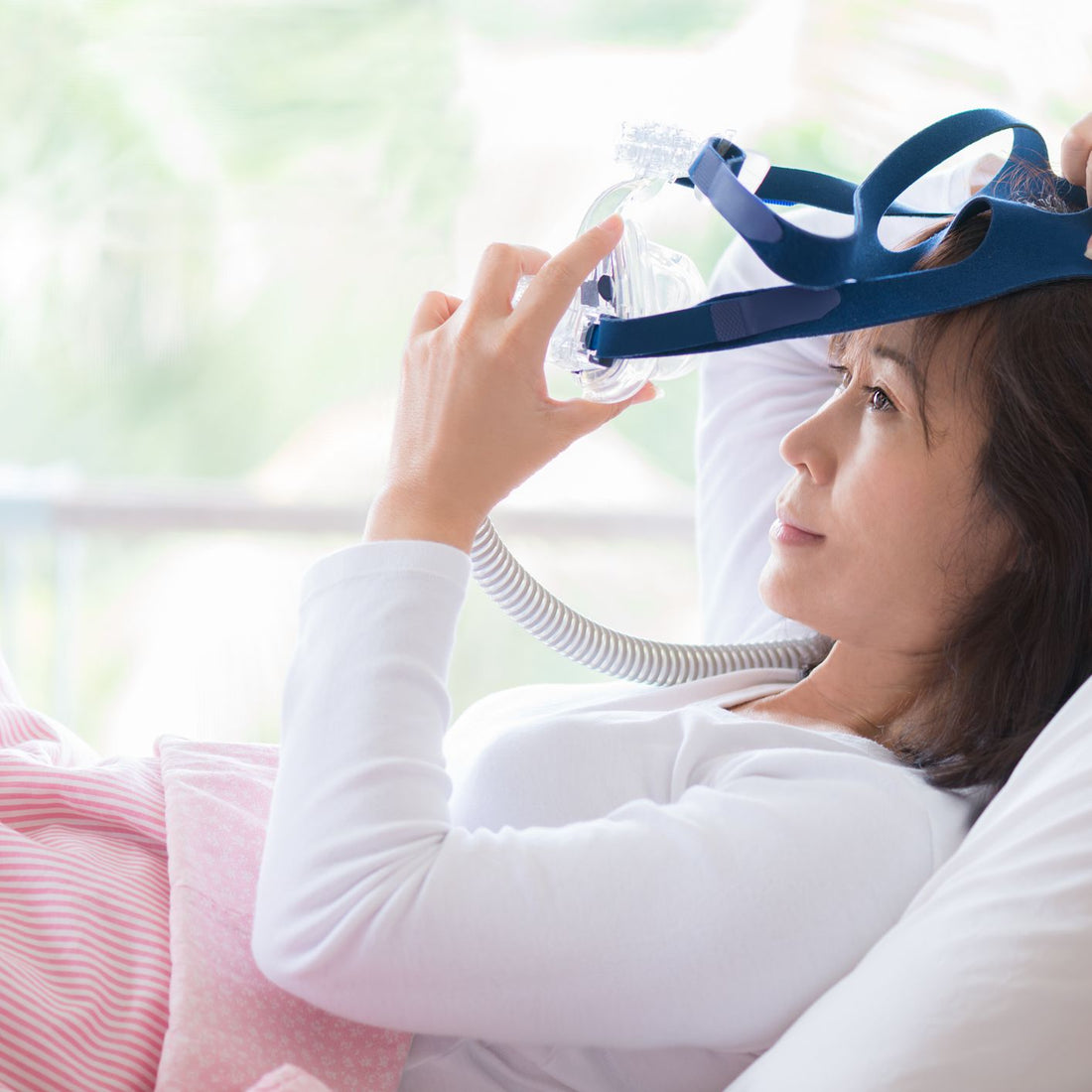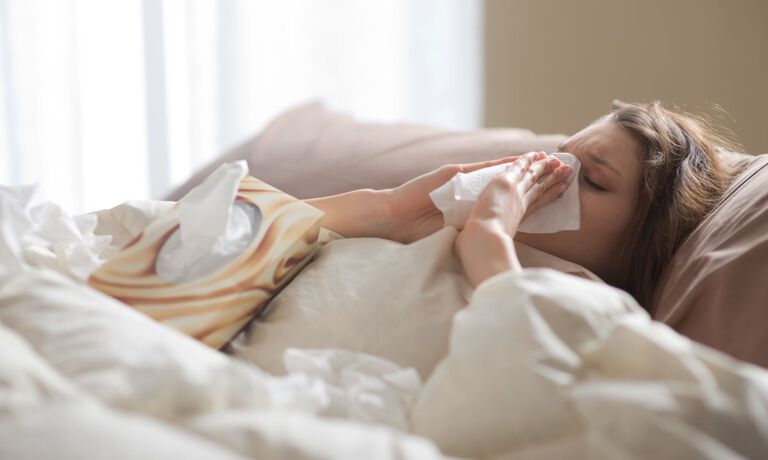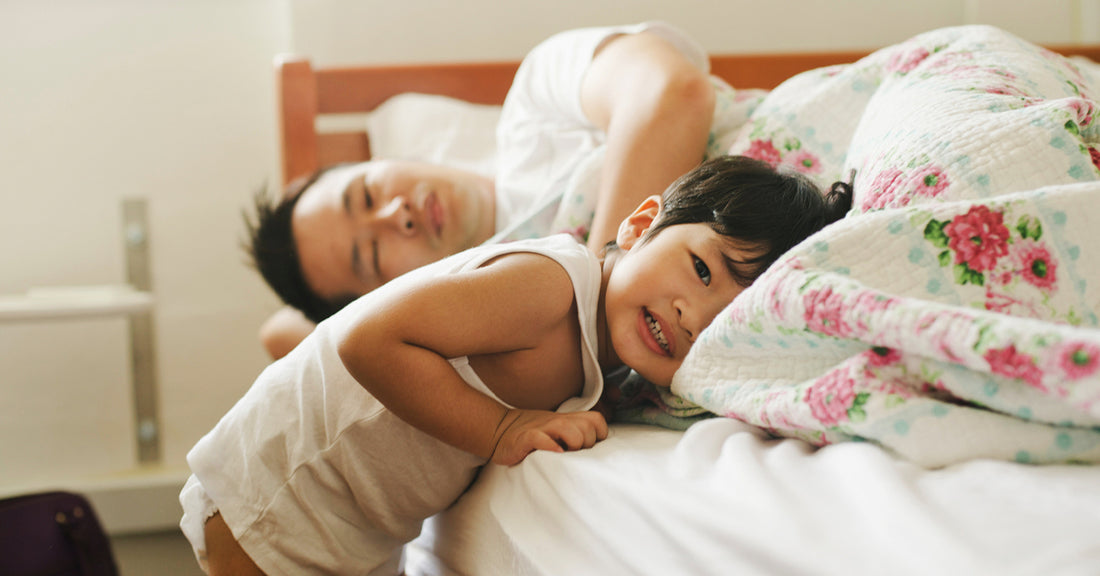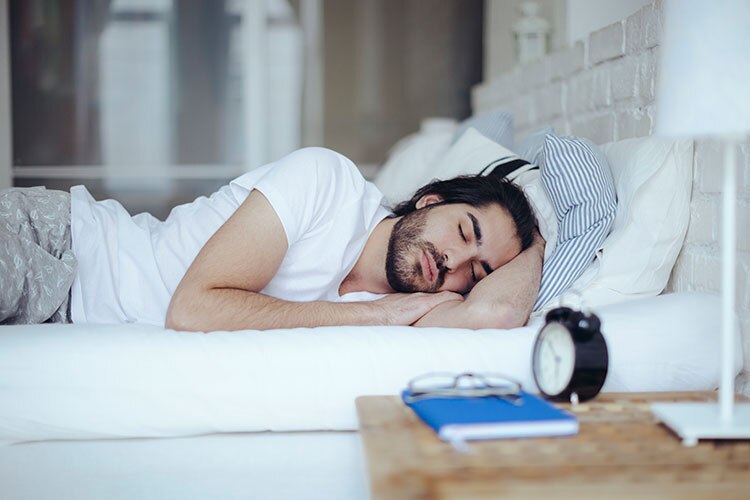News
Is Burnout Affecting your Sleep?
wp:paragraph Have you ever felt the effects of burnout? /wp:paragraph wp:paragraph This is a fairly newer term, yet this is extremely common amongst many adults in the workforce. Burnout happens when excessive and prolonged stress affects you to the point where you are physically and mentally exhausted. This typically stems from stress relating to your job, whether you are in a corporate office environment or if you work shifts. /wp:paragraph wp:paragraph Burnout has become more common over the past two years, especially with the rise of people working from home, and this can have some pretty negative effects on your sleep. /wp:paragraph wp:paragraph How to know if you are experiencing burnout /wp:paragraph wp:paragraph While you may think burnout symptoms only happen during the daytime, this is not always the case. If you have burnout, then you may be feeling overwhelmed, emotionally drained, unable to focus, and physically and mentally exhausted during the daytime. All of these can have negative effects on your sleep, which is crucial to how well you function during the daytime. Many people with burnout experience insomnia and have trouble falling and staying asleep. /wp:paragraph wp:paragraph Additionally, burnout can lead to unexplained physical symptoms such as headaches, nausea, and/or stomach aches, all of which can affect your sleep and possibly lead to bigger health problems. /wp:paragraph wp:paragraph Feeling burned out? Here are a few tips to get back on track and improve your sleep /wp:paragraph wp:list wp:list-item Practice some healthy habits in the daytime: this includes maintaining a healthy diet and getting in some exercise on a daily basis /wp:list-item wp:list-item Practice good sleep hygiene habits: make sure your bedroom is an environment that is suitable for sleeping, stick to a consistent bedtime routine and put your electronic devices away before bedtime. /wp:list-item wp:list-item Take proper breaks throughout your work day: it is important to step away from your work space every few hours so you can recharge and be more productive /wp:list-item wp:list-item Set some clear boundaries between your work and your home life. This is especially important if you work from home. Resist the urge to catch up on work or check emails when you are off the clock, especially at night /wp:list-item wp:list-item Take advantage of your days off: Use this time to relax, practice some self-care or partake in an activity you enjoy so you are coming back to work well rested /wp:list-item /wp:list wp:paragraph Contact us for more information. /wp:paragraph
about Is Burnout Affecting your Sleep?How Sleep Affects your Mental Health
wp:paragraph You may already know that sleep has a huge effect on your mental health. If you have ever found that your mental state is a little “off” after a bad night’s sleep, then you are not alone, it happens to all of us from time to time. /wp:paragraph wp:paragraph Your brain, just like your body, needs time to rest and recharge at night so that you function well during the daytime. However, it is important to know when a bad night of sleep (or more) is not just a one-time occurrence and is a sign of a bigger problem. Sleep is essential to many aspects of your overall well-being. When it comes to your mental health, a good night’s sleep can help to maintain positive mental health. /wp:paragraph wp:paragraph While bad sleep can happen to anyone, it is important to know when to seek medical help if you are going through a longer period of poor sleep that affects how you function in the daytime. This is often what leads to the diagnosis of many mental health disorders including depression, anxiety, bipolar disorder, PTSD, and more. All of which are treatable, but not without taking the first step and asking for help. /wp:paragraph wp:paragraph A few concerning symptoms to look out for include: /wp:paragraph wp:list wp:list-item Daytime fatigue /wp:list-item wp:list-item Falling asleep at inappropriate times during the day /wp:list-item wp:list-item Inability to concentrate /wp:list-item wp:list-item Low energy /wp:list-item wp:list-item Lack of focus /wp:list-item wp:list-item Irritability /wp:list-item wp:list-item Feeling emotional /wp:list-item wp:list-item Physical health problems /wp:list-item /wp:list wp:paragraph Be sure to speak to your doctor if poor sleep is consistently affecting how you function in the daytime. /wp:paragraph wp:paragraph A few tips to improve your sleep and maintain positive mental health: /wp:paragraph wp:list wp:list-item Stick to a consistent bedtime routine /wp:list-item wp:list-item Create a restful sleeping environment /wp:list-item wp:list-item Maintain healthy diet and exercise habits /wp:list-item wp:list-item Avoid caffeine and alcohol before bedtime /wp:list-item wp:list-item Limit technology: put your phone or other devices in a different room /wp:list-item wp:list-item Turn off the TV one hour before bedtime /wp:list-item wp:list-item Engage in a relaxing activity before bedtime, such as reading, journaling or listening to music /wp:list-item /wp:list wp:paragraph Contact us for more information. /wp:paragraph
about How Sleep Affects your Mental HealthThe Link Between Sleep and Alzheimer's
wp:paragraph January is Alzheimer’s awareness month in Canada. Alzheimer’s disease affects many older adults and can cause their thinking ability and memory to deteriorate over time. These patients face numerous struggles with their day-to-day lives, including sleep. /wp:paragraph wp:paragraph If you are caring for a loved one with Alzheimer’s, there are a few important things to know about how their sleep can be affected, and how to help them. /wp:paragraph wp:paragraph Common sleep problems amongst Alzheimer’s patients /wp:paragraph wp:list Trouble falling and staying asleep: the sleep cycle of an Alzheimer’s patient does not typically follow the same pattern of a healthy adult. They tend to wake up more often in the night and have trouble falling back asleep and their brain works differently. Daytime napping: many Alzheimer's patients tend to feel drowsy during the day and restless and agitated in the evening hours, also known as "Sundowning.” This is extremely common amongst Alzheimer’s patients Other medical issues: depression, restless legs syndrome and sleep apnea are all extremely common for Alzheimer’s patients and can negatively affect their sleep. /wp:list wp:paragraph How to resolve these sleep issues /wp:paragraph wp:list Establish a routine: it is important to keep consistency among daily activities such as mealtimes, medication, exercise and bedtime in order to promote a more restful sleep at night. Avoid stimulants: alcohol, caffeine and nicotine should be avoided before bedtime. Over the counter sleep medications such as Melatonin can be helpful but check with a doctor first as this could negatively interfere with other medications. Keep the bedroom comfortable: make sure the temperature in the room is comfortable and only use the bed for sleeping. Try and discourage afternoon napping if possible, so that it doesn’t interfere with sleep Promote relaxation in the evenings: limit the use of TV when it is close to bedtime. Instead, try listening to an audio book or playing peaceful music. Be sure to speak to a doctor for treatment if there are medical issues interfering with a proper night’s sleep. /wp:list
about The Link Between Sleep and Alzheimer'sInsomnia and Pandemic Stress
wp:paragraph Do you find yourself experiencing insomnia more than ever these days? /wp:paragraph wp:paragraph With the recent rise in Covid-19 cases thanks to the new Omicron variant, this is extremely common. A lot has recently changed with respect to gatherings, travel, work from home orders, and more, and many people are experiencing stress and not sleeping well as a result. Whether you are back to working remotely, limiting gathering with others, or if you are one of the unlucky ones that have had to deal with isolation or a positive test result, it is very common for sleep to be affected by all the uncertainty in the world right now. /wp:paragraph wp:paragraph If you are experiencing insomnia because of all of this, you are not alone. Here are a few tips to help insomnia related to pandemic stress. /wp:paragraph wp:paragraph Limit technology and media consumption /wp:paragraph wp:paragraph As tempting as it can be, try to avoid the overuse of your electronic devices including phones and tablets. Furthermore, be careful as to how much of the news you watch or read, especially news that is related to the pandemic as this can cause a lot of unnecessary anxiety, which in turn can affect your sleep. If you absolutely must keep up with the news, try reading only a few articles with relevant information or limit your news watching to 30 minutes so you don’t feel anxious and overwhelmed. /wp:paragraph wp:paragraph Get moving /wp:paragraph wp:paragraph Exercise can be extremely beneficial for helping to combat stress related to the pandemic. While some options may be limited thanks to the cold outdoor temperatures, some of the simpler exercises such as going on a walk or doing a short yoga routine at home can help with this. Exercise helps to release endorphins which are beneficial to your body when it is time to go to sleep. /wp:paragraph wp:paragraph Stick to a routine /wp:paragraph wp:paragraph For many people, stress tends to escalate when any sort of routine you have is thrown off. Routines tend to help us maintain a healthy and balanced lifestyle and to feel a sense of normalcy. This is especially true when it comes to routines that coincide with sleep. Make sure you stick to a good bedtime routine at night, which includes going to bed and waking up at the same time each day (or as close to the same time as possible). /wp:paragraph
about Insomnia and Pandemic StressTips for Better Sleep in the New Year
wp:paragraph Do you have a New Years' resolution yet? If not, 2022 may be the year to improve your sleep. /wp:paragraph wp:paragraph Resolutions to do with overall health and wellness are very common. Many people find that their sleeping habits are slacking quite a bit once the new year rolls around. The change of routine from the holidays can have a lot to do with this, but maybe you have a few bad sleeping habits happening for a while that you would like to improve on. /wp:paragraph wp:paragraph Here are a few common sleep resolutions you may want to consider implementing. /wp:paragraph wp:paragraph Going to bed at a reasonable time: have you been going to bed later and later each night? Maybe you are notorious for binge-watching TV before bed and it’s easy to lose track of the time. Or maybe you have been staying up late over the holidays whether you are celebrating or just enjoying the time off work. Make sure you get back on track and stick to a consistent bedtime. /wp:paragraph wp:paragraph Getting in 8-10 hours of sleep: most adults need at least 7-10 hours of sleep each night in order to feel well-rested and have a productive day. Similar to the last point, staying consistent in your bedtimes (and wakeup times) will help you to get enough sleep, in addition to practicing some healthy habits to promote better sleep. /wp:paragraph wp:paragraph Creating a good sleeping environment: make sure that your bedroom is an environment that is suitable for sleeping! Otherwise, it will be difficult to improve your sleep. Keep your bedroom dark and cool (but not too cold!). Use blackout curtains to keep the room dark and make sure your bed is comfortable for sleeping. /wp:paragraph wp:paragraph Practice healthy habits for sleep: staying healthy with a proper diet and exercise is important in helping you to get a good night’s sleep. Don’t indulge in coffee, alcohol, or heavy meals too close to bedtime. And keep your phone and other technological devices out of the bedroom! /wp:paragraph
about Tips for Better Sleep in the New YearGet Your CPAP Ready For The Winter
wp:paragraph The nights are starting to get colder, but this doesn’t mean that your sleep needs to suffer as a result. Sleep apnea symptoms have been known to be much worse in the wintertime, thanks to the cold and dry air that can dry out your mouth and nasal passages, making it more difficult to sleep. If you use a CPAP machine, then now is the time to make sure it is ready for winter use! Here are four things to think about when it comes to getting your CPAP ready for the winter. /wp:paragraph wp:paragraph Don’t skip humidification: This doesn’t just apply to the humidifier you may use in your bedroom to prevent dry air (though this is beneficial in sleeping better) using a humidifier and/or heater with your CPAP machine will help to prevent your airway from drying out and make for a more comfortable user experience overall. /wp:paragraph wp:paragraph Make sure the parts are in working order: Take a moment to do a quick inventory of all the parts on your CPAP machine, including the tubing, the mask, humidifier and any filters that may be required. If a part is wearing down or not in good working condition, then this can cause the rest of the CPAP to not work properly. Don’t wait until it’s too late to replace these parts, make sure you get them ahead of time. /wp:paragraph wp:paragraph Keep the machine clean: Regular cleaning of your CPAP is important at any time of year, but this is especially the case in the wintertime, when your humidifier and/or heater is being used on more of a regular basis and moisture from this builds up. /wp:paragraph wp:paragraph Don’t skip the CPAP when you are sick: Colds are no fun, and it may be tempting to skip the CPAP for just a night or two if you are feeling stuffed up but don’t do this! Rest is extremely important for recovery, and skipping the CPAP even for just a night can cause your sleep apnea symptoms to worsen and make for a poor night’s sleep. /wp:paragraph
about Get Your CPAP Ready For The WinterTips for Sleeping When You Have a Cold
wp:paragraph The dreaded cold and flu season is upon us, and chances are, you may be affected by a cold or flu at some point, no matter how vigilant you are at washing your hands and disinfecting the area around you. Many cold and flu symptoms also tend to make sleeping incredibly uncomfortable, which is the last thing you want to be able to fight it off. Here are a few tips for getting a good sleep when you have a cold. /wp:paragraph wp:paragraph Get lots of rest: you may have heard this many times already but giving your body a chance to rest is truly the best medicine for fighting off colds. Going to bed a little earlier and waking up a little later than normal is okay. You may also consider a mid-day nap as well. Lounging on the couch and binge-watching your favourite show is okay too, but don’t overdo it. /wp:paragraph wp:paragraph Take over-the-counter cold medicines: be sure to keep some Advil or Tylenol on hand to help you sleep better, especially ones geared towards alleviating cold and flu symptoms. There are lots of cold & flu medicines available for “nighttime” use that will help you sleep, but be sure to read the labels carefully and don’t take more than the recommended dosage. /wp:paragraph wp:paragraph Keep the room humidified: the cold air outside can dry out the air in your bedroom, which has a counter-intuitive effect on alleviating cold symptoms. Using a humidifier to help moisten the air will help you sleep better. /wp:paragraph wp:paragraph Stay hydrated: your body will need lots of liquids to help fight your cold off. Drink lots of water, and herbal tea with honey is especially beneficial. As a bonus, add a small slice of lemon. Avoid caffeine and alcohol as they will both leave you dehydrated. /wp:paragraph wp:paragraph Alleviate any sinus discomfort: Blocked sinuses are common when you have a cold, and this can make sleeping very uncomfortable when you can’t breathe properly. Try propping your head up slightly with a pillow to help you breathe a bit easier. /wp:paragraph wp:paragraph Take a hot shower or bath: the heat from doing either of these things will help to relax your muscles and reduce your cold symptoms before bed. /wp:paragraph wp:paragraph Contact us for more information. /wp:paragraph
about Tips for Sleeping When You Have a ColdThe Connection Between Sleep Apnea and Genetics
wp:paragraph If you have someone in your family who has been diagnosed with sleep apnea, it may be natural to wonder if you will develop sleep apnea too. /wp:paragraph wp:paragraph There has been a lot of research done over the years that looks at the connection between sleep apnea and genetics. While sleep apnea can run in the family, it is not necessarily known to be a condition that is genetic. There are, however, many risk factors of sleep apnea that do involve genetics. Here are a few of them: /wp:paragraph wp:paragraph Gender: sleep apnea is generally more common in males than females, but gender alone doesn’t always lead to a sleep apnea diagnosis, there are usually other factors involved. /wp:paragraph wp:paragraph Lifestyle: certain lifestyle factors can be genetic and may lead to a sleep apnea diagnosis, such as excessive drinking and smoking, especially close to bedtime. Both of these things have been known to not only be genetic but also lead to a sleep apnea diagnosis. /wp:paragraph wp:paragraph The shape of your jaw or airway: this is usually a big risk factor in diagnosing sleep apnea, especially with certain features such as a larger tongue, large tonsils, overbite, or any other facial structure that risks crowding the space at the back of your throat. Facial structures like this are usually hereditary and tend to look the same from generation to generation. /wp:paragraph wp:paragraph Body type: individuals who are overweight or obese have a greater risk of being diagnosed with sleep apnea. Body fat distribution tends to be genetic most of the time, and a lot of genetic lifestyle factors and body structures can lead to a larger body type, which in turn can increase the risk of developing sleep apnea. /wp:paragraph wp:paragraph Pre-existing health conditions: there are many genetic health conditions that can be a huge risk factor in a sleep apnea diagnosis. Some of these include heart disease, stroke, high blood pressure and type 2 diabetes. /wp:paragraph wp:paragraph Contact us for more information. /wp:paragraph
about The Connection Between Sleep Apnea and GeneticsOSA vs CSA: The Main Differences
wp:paragraph Sleep apnea is a serious sleep disorder that comes in two different forms; Obstructive Sleep Apnea (OSA) and Central Sleep Apnea (CSA). While both forms of sleep apnea cause a pause in breathing while you sleep, the reasoning behind this breathing interruption is what divides these two forms. /wp:paragraph wp:paragraph Obstructive Sleep Apnea /wp:paragraph wp:paragraph OSA is the more common of the two types. This involves an actual blockage or collapse of the airway that causes the apnea episode. OSA is most often treated with the use of a CPAP machine, and it more commonly occurs in patients who are male, middle-aged, and/or overweight. /wp:paragraph wp:paragraph Central Sleep Apnea /wp:paragraph wp:paragraph CSA is not as common as the two types of sleep apnea. Unlike OSA, the pause in breathing is actually caused by your brain not signaling the airway muscles to take in the air you breathe while you are sleeping, thus causing apnea episodes. Anyone can get CSA, though it is more common in adults over age 65 and usually occurs as a result of a serious illness that requires medical intervention. /wp:paragraph wp:paragraph The differences /wp:paragraph wp:paragraph As mentioned above, CSA does not involve a physical blockage of the airway the way OSA does. This means that a CPAP machine is generally more effective for OSA patients (though some doctors may occasionally recommend a CPAP machine for CSA patients too). Snoring, while a very common symptom for OSA, often does not occur in CSA patients. /wp:paragraph wp:paragraph Both forms of sleep apnea, if left untreated, can cause fatigue and sleepiness during the daytime, morning headaches, and restless sleep overall, as the apnea episodes often tend to wake you up while sleeping. This is why seeking medical attention is vital in order to correctly diagnose which form of sleep apnea you have and how to properly treat it. /wp:paragraph
about OSA vs CSA: The Main Differences